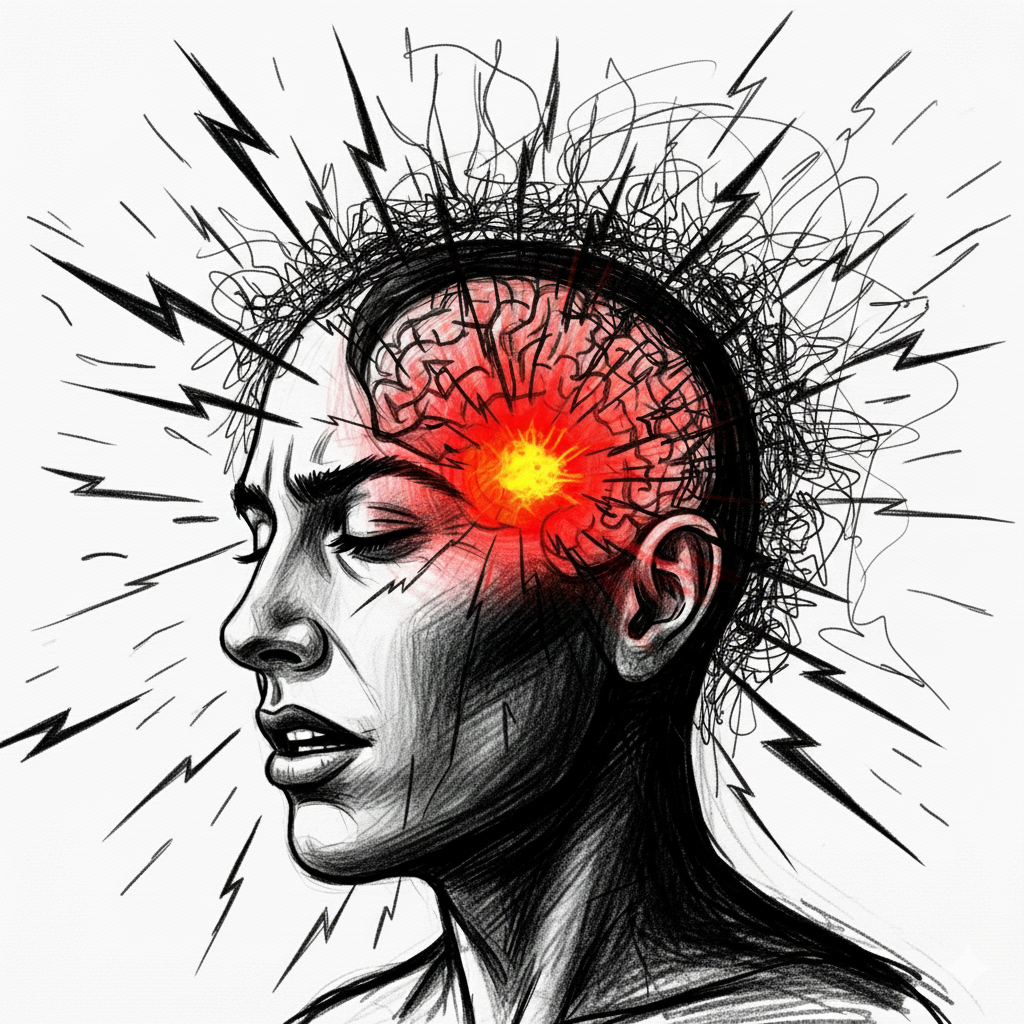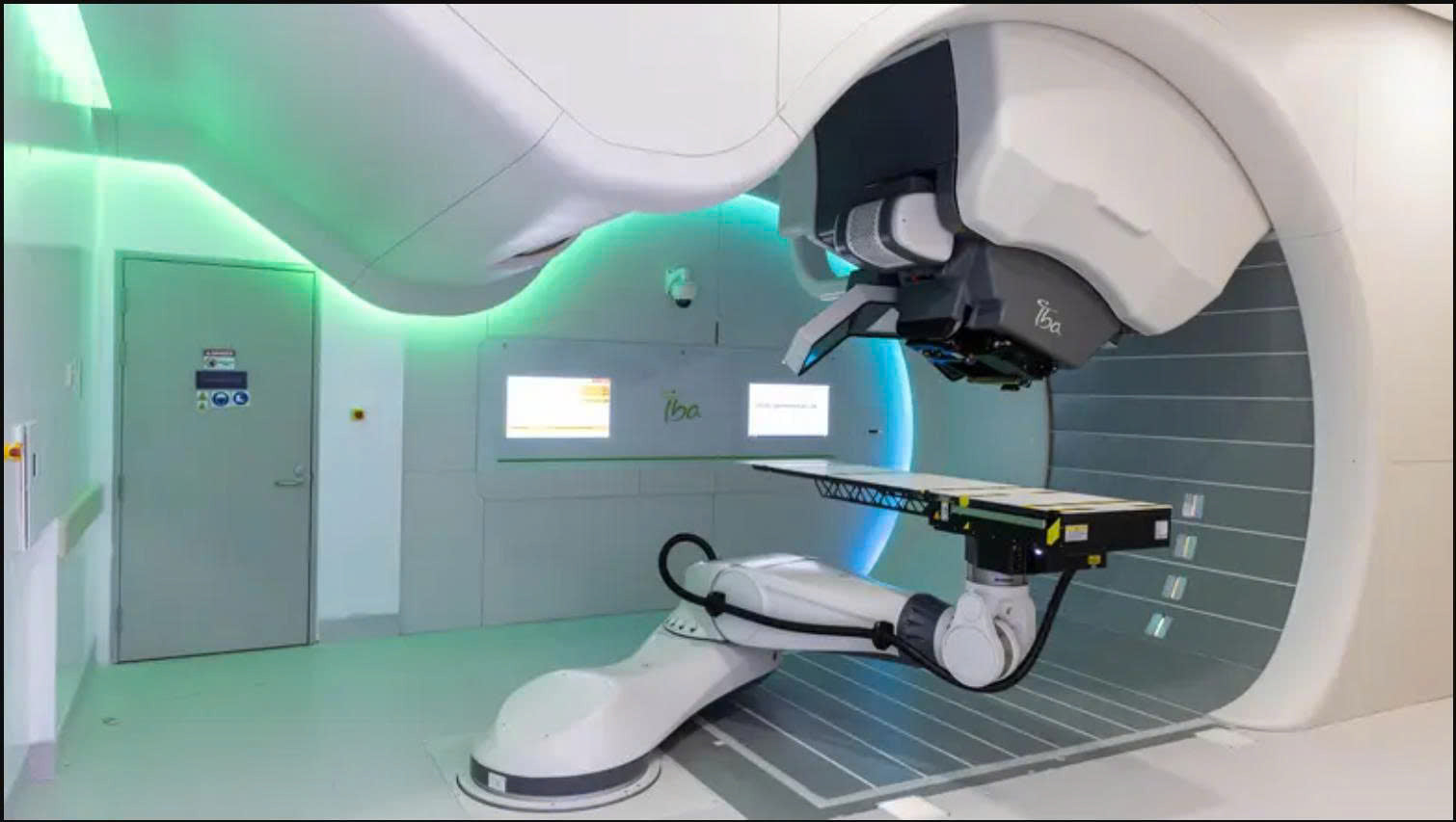Sudden severe headache

What is sudden severe headache?
A sudden severe headache is a severe headache that suddenly reaches its peak intensity within seconds to a minute. This type of headache can be alarming because of its sudden onset and severe pain.
A sudden, severe headache often indicates a serious underlying medical condition, such as bleeding in the brain or other neurological emergency, and should always be considered a medical emergency.
 What are the types of sudden severe headaches?
What are the types of sudden severe headaches?
Sudden severe headaches can be classified based on their underlying cause:
- Primary sudden severe headaches occur without an identifiable underlying cause. These are rare but may be benign.
- Secondary sudden severe headaches are caused by serious underlying medical conditions such as:
- Subarachnoid hemorrhage (bleeding in the brain)
- Reversible cerebral vasoconstriction syndrome (RCVS)
- Cerebral venous sinus thrombosis (blood clot in the brain)
- Carotid artery dissection (cervical artery tear)
- Pituitary insufficiency (bleeding or reduced blood supply to the pituitary gland)
- Hypertensive crisis (extremely high blood pressure)
What are the symptoms of a sudden severe headache?
Symptoms of a sudden, severe headache include:
- Sudden, severe headache that reaches maximum intensity within seconds to a minute
- The pain is often described as the worst headache ever experienced.
- Nausea and vomiting
- Stiff neck
- Sensitivity to light (photophobia)
- Vision changes such as blurred vision or double vision
- Confusion or altered mental status
- Convulsions or loss of consciousness in severe cases
When to seek medical attention?
Because of the potential seriousness of the underlying causes, it is important to seek immediate medical attention if you experience a sudden, severe headache. You should seek immediate medical attention if:
- You have a sudden, severe headache that reaches its peak intensity within a few seconds to a minute.
- Headache accompanied by symptoms such as nausea, vomiting, stiff neck or visual disturbances
- You have a history of headaches, but this headache is significantly different in intensity and onset.
When to go to urgent care?
Go to an urgent care center right away if:
- You have a sudden, severe headache, as this could be a sign of a life-threatening condition.
- Headache accompanied by neurological symptoms such as confusion, weakness, numbness, or difficulty speaking
- You have seizures, loss of consciousness, or any other serious symptoms
The sooner the underlying cause is addressed, the better. Early treatment can significantly improve recovery and prevent long-term complications.
What causes sudden severe headaches?
Sudden, severe headaches are caused by many serious and potentially life-threatening conditions, including:
- Subarachnoid hemorrhage , which refers to bleeding in the space between the brain and the membranes surrounding it, is a medical emergency that requires immediate attention.
- Ruptured aneurysm , which refers to a weak bulge in a blood vessel that ruptures.
- Reversible cerebral vasoconstriction syndrome (RCVS) , refers to the temporary narrowing of blood vessels in the brain.
- Cerebral venous sinus thrombosis , refers to a blood clot in the venous sinuses of the brain.
- Cervical artery dissection , refers to a tear or dissection of one of the arteries that supply blood to the brain.
- Hypopituitarism , refers to bleeding or reduced blood supply to the pituitary gland.
- Hypertensive crisis , refers to extremely high blood pressure that causes complications.
- Preeclampsia or eclampsia , refers to pregnancy complications that involve sudden changes in blood pressure, potentially leading to sudden, severe headaches.
- Meningitis , refers to inflammation of the membranes surrounding the brain and spinal cord.
What are the complications of sudden severe headache?
Complications of a sudden severe headache arise not from the headache itself, but from the underlying medical condition that causes it. Because a sudden severe headache can be a sign of a serious condition, potential complications can be very serious if left untreated:
Complications from intracerebral hemorrhage:
- Brain damage. Bleeding in the brain (subarachnoid hemorrhage) can damage brain tissue if not treated promptly. This damage can lead to long-term problems such as cognitive impairment, paralysis, or even coma.
- Hydrocephalus. This is a condition in which cerebrospinal fluid (CSF) builds up in the brain, causing pressure and potentially leading to further brain damage.
- Seizures. Bleeding in the brain can increase the risk of seizures, which require immediate medical attention.
- Death. In severe cases, bleeding in the brain can be fatal, highlighting the importance of seeking immediate medical attention for a sudden, severe headache.
Complications from aneurysm rupture:
- Stroke. A ruptured aneurysm can block blood flow to parts of the brain, leading to a stroke. Symptoms of a stroke may include weakness, numbness, or difficulty speaking.
- Coma. In severe cases, a ruptured aneurysm can lead to a coma.
- Death. A ruptured aneurysm can be life-threatening, emphasizing the urgency of seeking medical attention for a sudden, severe headache.
Complications from other causes:
- Complications of meningitis. If meningitis is the cause of your sudden, severe headache, complications can include hearing loss, learning difficulties, or even brain damage if not treated promptly.
- Long-term effects of high blood pressure. If your sudden, severe headache is due to a hypertensive crisis (a sudden, severe increase in blood pressure), long-term complications of high blood pressure can develop if it is not effectively controlled.
Early diagnosis and treatment of the underlying cause of a sudden, severe headache is important to prevent these complications. If you have a sudden, severe headache, go to the nearest urgent care center.
How to prevent sudden severe headaches?
There is no guaranteed way to completely prevent sudden severe headaches because they arise from a variety of underlying medical conditions. However, focusing on managing potential risk factors and maintaining a healthy lifestyle can help reduce the risk of developing certain conditions that can cause sudden severe headaches:
- Regularly monitor and manage blood pressure to prevent hypertensive crises.
- These can increase the risk of blood vessel problems that can lead to sudden, severe headaches.
- Although it is not always preventable, taking precautions to minimize head injuries (wearing seat belts, helmets when playing sports) can be helpful.
- Get regular checkups to identify and manage conditions that can cause sudden, severe headaches.
- Maintain a healthy lifestyle with a balanced diet, regular exercise and stress management.
How is a sudden severe headache diagnosed?
Diagnosis of sudden severe headache includes:
- Ask your doctor about your medical history and symptoms .
- Physical and neurological examination.
- Medical imaging such as a CT scan or MRI of the brain to detect bleeding, blood clots, or other abnormalities.
- Lumbar puncture (lumbar puncture) to analyze cerebrospinal fluid if bleeding is suspected but not seen on imaging.
- Angiography , which refers to the taking of pictures of blood vessels to detect any abnormalities such as aneurysms or narrowing of blood vessels.
How to treat sudden severe headache?
Treatment of sudden severe headaches focuses on addressing the underlying cause and controlling symptoms:
- Emergency care. Immediate medical intervention to stabilize the patient and prevent complications.
- Medication. Depending on the cause, medications may be used to control blood pressure, prevent blood clots, or reduce inflammation.
- Surgery. In the case of bleeding or an aneurysm, surgical intervention may be required.
- Continuous monitoring and management. Monitor regularly to track recovery and manage any ongoing issues.
-------------------------------------------------------------------------------------------
👉 Contact SunCare for medical support and advice as well as professional private jet transportation services 🇸🇬 SUNCARE PTE. LTD SINGAPORE
🏠 Add: 10 Anson Road, #10-11 International Plaza, Singapore 079903
☎️ Hotline: +65 96727717 (Dr. Lien Minh - Director) Zalo, Viber
📨 Email: suncarehealth@gmail.com





